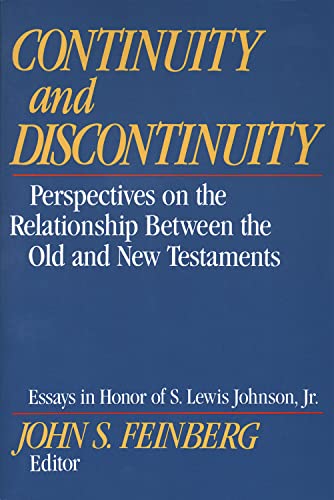This commentary on Philippians, by a distinguished NT scholar from the faculty of Westminster Theological Seminary, is the initial volume in Moody Press’ ambitious venture of producing still another exegetical commentary series with a conservative theological orientation. When completed this series will number fifty to fifty-five volumes, covering every book of the Bible. It is designed especially for informed lay persons, students and scholars. The exegesis and exposition of each volume will be based on the original languages of the Bible and each author will provide his/her own fresh translation of the text.
Silva prefaces his volume by saying that this new project has allowed him to put into practice some of his own ideas about commentary writing. For example, he is convinced that the traditional verse-by-verse approach of most commentaries is often detrimental to a faithful exposition of the biblical text. Hence, he departs from this practice and chooses instead to write his commentary in the form of ‘exegetical essays’ on carefully defined units of thought, units that must be read ‘in blocks—the larger the blocks the better’ (p. xiv). His approach, however, does not neglect a discussion of the more technical problems of text, language and interpretation, much of which he places in a section entitled ‘additional notes’, that immediately follows the exegesis and exposition.
Silva’s introduction is relatively brief. He believes that many of the matters usually discussed here ‘are best treated as they come up in the text itself, since the exegesis of the text is the primary tool for resolving such problems’. He does, however, include in this introductory section other helpful information that is not always found in commentaries. Some of these are: (1) a reconstruction of events detailing Paul’s contacts with the Philippian church; (2) a ‘textual history’ which helps one better to assess individual textual variants as they occur in the text; and (3) a brief but interesting exegetical history of Philippians—sketches and evaluations of several of the major commentaries on this letter from Chrysostom’s study to works of present-day scholars.
One cannot but be impressed with Silva’s skill as an exegete. His extreme care in analysing the text, his thorough understanding of the original language, his grasp of linguistic subtleties, his mastery of secondary sources—all combine to provide the reader with an excellent commentary. My criticisms, therefore, pale in the light of these fine qualities and are more of the series itself than of Silva’s work.
- First of all I seriously question the advisability of beginning another major evangelical critical commentary series at a time when the Word Biblical Commentary Series, which also purports to be ‘the best in evangelical scholarship’, is even now in progress and has not yet been brought to completion. Surely Silva himself must know the answer to this question, for not only did he write this initial volume, but he is the NT co-ordinator (i.e. editor) of the series. The mere fact that this venture allows him and exegetes like him to put into practice ‘a few ideas about commentary writing that they have entertained for some time’ hardly seems justification enough for the enormous outlay of intellectual energies and financial resources required to bring such an ambitious but redundant project to fruition.
- The editorial policy of this series (Wycliffe Exegetical Commentary) of putting Greek words and phrases in their original script, followed immediately by English transliterations and translations at their first occurrence and after that of making use of transliterations only, is carried out precisely by Silva. But such a practice certainly clutters up the unit being discussed and tends more toward confusion than clarification. If readers are not familiar with the Greek script, transliteration will be of little value to them, especially when most have no idea of how Greek transliterated words should be pronounced. Furthermore, it will be frustrating for these same people to read such things as καρπός, (karpos, ‘fruit’) and δικαιοσύνη (dikaiosynē, ‘righteousness’), etc., and be expected to remember these foreign words and to hold both their forms and meanings in mind so that they can understand what is meant when they read further on a sentence like this: ‘even if dikaiosynē here were interpreted as forensic, the ethical note would still be present in karpos’. And if lay persons will be frustrated by this pattern of things, readers who are familiar with a Greek script will be annoyed at having to read back through the English symbols to the Greek words that underlie them.
- The practice of writing exegetical essays in large blocks certainly has its advantages, not the least of which is its ability to focus on the major thrust of each unit. But these do not out-weigh the advantages of the carefully done verse-by-verse commentary accompanied by a full explanatory summary of each section (cf. the Word Biblical Commentary Series), if for no other reason than that, while drawing attention to the so-called ‘big picture’, many of the smaller matters that may be of great interest or importance to a student or pastor or scholar must be neglected or not discussed at all. The supplement of ‘additional notes’ alleviates this problem to some extent, but not entirely. There are too many places to look, so that ironically in the end the intent of the editors is realized: one has here a commentary that ‘is not designed to provide quick answers’.
- On occasion Silva allows his theological presuppositions to control his exegesis. The clearest example of this is found in his discussion of the passage that includes the familiar saying, ‘Work out your own salvation with fear and trembling’ (2:12). Whereas the larger context of this verse (beginning with 1:27), which describes a spiritually sick church and cries out, therefore, for some such translation of v. 12 with its crucial word, ‘salvation’, as this: ‘obediently work at achieving spiritual health’ (salvation), Silva-argues instead that this verse and its crucial word ‘speaks of personal salvation’. Although his arguments are carefully worked out, with only a few ad hominem thrusts, they nevertheless seem to stem from an antecedent theological conviction that the word ‘salvation’ has one fundamental meaning wherever it is found in the NT, namely, that it refers to the ultimate saving work of God. Silva does concede parenthetically, however, that the personal salvation in view here (in 2:12) ‘manifests itself primarily in healthy community relationships’ (p. 137; italics mine).
It is this same theological orientation that calls into question his interpretation of another well-known verse—Philippians 1:6. Once again, where the context of this verse demands that the ‘good work’ begun by God among the Philippians, and which Paul clearly had in mind, be understood as the partnership of these Christians with him in the spread of the gospel, Silva understands it to refer to the Philippians’ salvation (p. 52). But the theological idea of ‘salvation’ (i.e. God’s redeeming and renewing work in the lives of Christians) must be imported from elsewhere; it is not in this text or its context. Surely it is God who begins the work of personal salvation, and it is God who will carry it through to completion, but this is hardly what was in Paul’s mind when he wrote Philippians 1:6.
- In a brief review of W. Schenk’s Der Philipperbrief, Silva writes: ‘It is … unfortunate that Schenk conveys a certain arrogance. I do not refer to a personal quality, but a disciplinary cocksure-ness …’ (p. 35). There is regrettably a bit of this same cocksure arrogance that mars Silva’s own work. It is a pervasive tone that can be felt more in the reading than can be detailed with specific examples (although these are not lacking). My wish, then, for this present volume can best be expressed in Silva’s own words about Schenk’s: ‘One can only hope that readers of his commentary will not be put off by that tone and so miss the rich exegetical fare that he has to offer’ (p. 35).
Gerald F. Hawthorne
Wheaton College, Illinois







